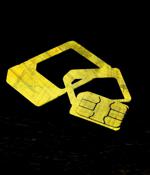Security News

FCC adds Kaspersky, Chinese companies to list of potential threats to national security. The Federal Communications Commission's Public Safety and Homeland Security Bureau has added three companies to the list of communications equipment and services that pose a threat to national security through access to user information.

The U.S. Federal Communications Commission on Friday moved to add Russian cybersecurity company Kaspersky Lab to the "Covered List" of companies that pose an "Unacceptable risk to the national security" of the country. Also added alongside Kaspersky were China Telecom Corp and China Mobile International USA. The block list includes information security products, solutions, and services supplied, directly or indirectly, by the company or any of its predecessors, successors, parents, subsidiaries, or affiliates.

The US Federal Communications Commission today proposed the largest-ever fine against a robocaller for Telephone Consumer Protection Act violations. The Commission wants to hit Florida-based lead generator Interstate Brokers with a $45 million TCPA fine for making more than 500,000 unlawful robocalls without an emergency purpose or the consumers' prior express consent.

The Federal Communications Commission has proposed more rigorous data breach reporting requirements for telecom carriers in response to breaches that recently hit the telecommunications industry. "I look forward to having my colleagues join me in taking a fresh look at our data breach reporting rules to better protect consumers, increase security, and reduce the impact of future breaches."

The Federal Communications Commission announced earlier this week that phone companies are now required to filter calls from providers who haven't complied with a deadline to block illegal robocalls expired on September 28th. They can only accept calls from voice service providers registered in the Robocall Mitigation Database who have implemented caller ID authentication technology for calls carried made over Internet Protocol networks or filed a robocall mitigation plan with the FCC. "This technology is critical to protecting Americans from scams using spoofed robocalls because it erodes the ability of callers to illegally spoof a caller ID, which scammers use to trick Americans into answering their phones when they shouldn't," the FCC explains. To make it easy to comply with this robocall blocking deadline, the FCC provides an email subscription service that telecom companies can use to keep track of changes to the Robocall Mitigation Database.

The Federal Communications Commission in the U.S. this week announced that it started to work on rules that would pull the brake on SIM swapping attacks. The decision comes after the agency "Received numerous complaints from consumers who have suffered significant distress, inconvenience, and financial harm as a result of SIM swapping and port-out fraud."

A secret campaign by the broadband industry to offer support to roll back net neutrality resulted in fake comments comprising more than 40 percent of those sent to the FCC during the public comments phase of its decision, according to the report by the New York State Office of the Attorney General. On the other side of the debate, a 19-year-old college student who opposed the repeal of net neutrality managed to file more than 7.7 million pro-neutrality comments with the FCC by fabricating people's names and addresses using software.

Last Thursday, Rosenworcel made a statement on future priorities by reestablishing the Communications, Security, Reliability, and Interoperability Council with a focus on 5g networks and software and cloud services vulnerabilities. "That is why I am refocusing and revitalizing the FCC's Communications, Security, Reliability, and Interoperability Council for the challenges of today and tomorrow. The damage from recent supply chain attacks, like the SolarWinds software breach, demonstrates our need for a coordinated, multifaceted, and strategic approach to protecting our networks from all threats."

Outgoing Federal Communications Chair Ajit Pai has issued a final warning about Chinese telcos at the end of a tenure spent cracking down on companies like Huawei, ZTE and China Telecom. Pai, a former telecommunications industry lobbyist and in-house counsel for Verizon, told Reuters that managing security threats against U.S. networks from Chinese espionage will be the "Biggest national security issue that regulators will face in the next four years."

Ossia announced that the Federal Communications Commission granted Ossia an additional equipment authorization for its next-generation Cota wireless power platform. The FCC's approval authorizes wireless power delivery and data communications under Parts 18 and 15, respectively, of the FCC's rules and permits the system to be marketed and sold in the U.S. This FCC authorization marks the culmination of on-going efforts at Ossia to improve performance and capabilities of the platform as a launchpad to new applications and use cases.